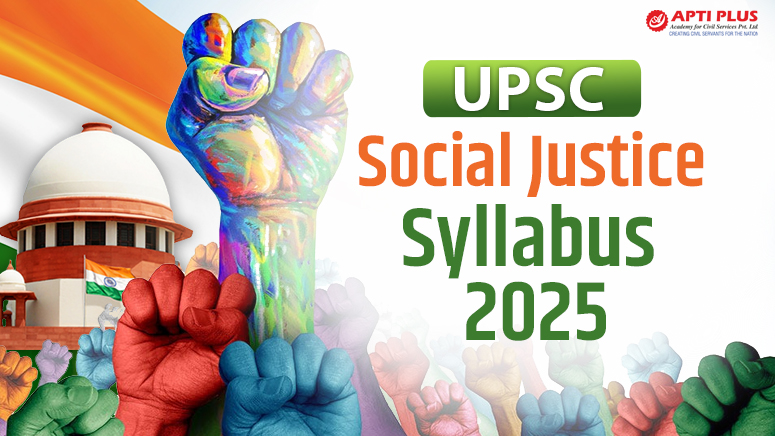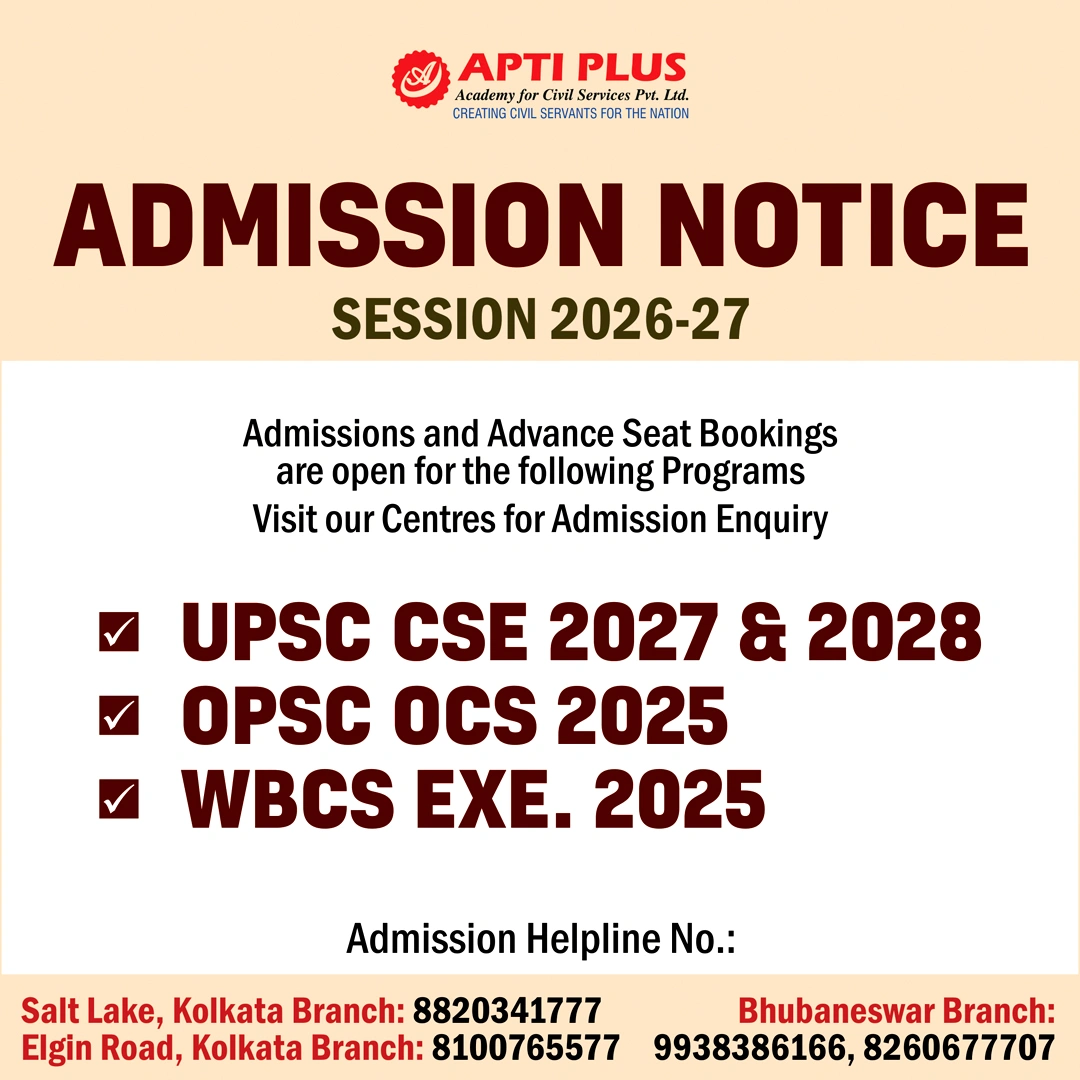The Social Justice section is a vital component of the General Studies Paper II in the UPSC Civil Services Mains Examination. Rooted in the Indian Constitution and public policy, this section tests a candidate’s understanding of how laws, schemes, and institutions function to ensure equality, equity, and inclusion in Indian society.
With growing awareness about social disparities and government intervention, the Social Justice syllabus has become more relevant than ever in the UPSC exam. This blog provides a detailed overview of the Social Justice syllabus for 2025.
UPSC Social Justice Syllabus 2025, Topic-wise
Each topic in the UPSC Social Justice Syllabus 2025 addresses many programs, acts, policy initiatives, and institutional functions that must be explored with examples, data, and case studies. As stated in General Studies Paper II of the official UPSC Syllabus 2025, the important components of social justice include:
- Welfare programs for vulnerable segments of the population
- Issues concerning the growth and management of social sector/services in the sectors of health, education, and human resources.
- Mechanisms, legislation, institutions, and bodies established for the protection and improvement of vulnerable populations
- Issues concerning poverty, hunger, and inclusive growth
UPSC Social Justice Syllabus, 2025 Prelims
Though there is no designated part in the Prelims, it arises indirectly through questions about government plans, rights-based laws, and social programs. Preliminary preparation should include facts, years of launch, ministry names, and financial allocations for important initiatives. The focus areas include:
- Flagship projects such as PMAY, MGNREGA, Ayushman Bharat, and Ujjwala Yojana
- Constitutional provisions pertaining to social welfare (Articles 14-17, 39–46)
- National commissions and statutory bodies (NCCBC, NCW, and NCPCR).
- Reports from the NITI Aayog, Ministry of Social Justice, and NGOs
UPSC Social Justice Syllabus, 2025 Mains
In GS Paper II, questions about social justice assess a candidate’s analytical and problem-solving abilities. Use government data (NSSO, Census, SDG Index) and journalistic examples to back up your responses. Important themes include
- Social empowerment for SCs, STs, OBCs, minorities, women, and the elderly.
- The implementation of welfare schemes faces significant challenges.
- The role of civil society and non-governmental organisations (NGOs) in inclusive development
- Issues of starvation, education inequity, and healthcare access
- Human Development Indicators and UNDP Rankings
- Legal and institutional frameworks such as RTE, NFSA, Juvenile Justice Act, and the Rights of Persons with Disabilities Act.
Social Justice Preparation Tips
Social Justice Preparation Tips – In Pointers (150 Words)
- Understand the Syllabus Themes: Focus on welfare schemes, vulnerable sections, constitutional provisions, and social sector development (health, education, human resources).
- Link Current Affairs: Relate news articles, budget announcements, and government schemes with core topics.
- Focus on Flagship Schemes: Study Ayushman Bharat, NEP 2020, MGNREGA, Mission Shakti, etc., in terms of objectives, impact, and challenges.
- Use Authentic Data: Quote stats from NFHS, SDG Index, ASER, and Economic Survey to support arguments.
- Refer Standard Sources: Use NCERTs (Sociology), ARC Reports, India Year Book, Yojana, Kurukshetra, PIB, and PRS India.
- Practice Answer Writing: Solve PYQs and write structured answers with intro-body-conclusion format.
- Revise Regularly: Keep updating facts and schemes as policy changes are frequent.
- Attempt Test Series: Join GS mains test series to get feedback and improve time management.
- Interlink Topics: Connect Social Justice themes with Ethics, Governance, and Polity for multidimensional answers.
Best Resources for Preparation
- NCERTs – Class 11 & 12 Sociology
- India Year Book – Chapters on social development
- Indian Polity by M. Laxmikanth – for constitutional background
- Social Problems in India by Ram Ahuja – for deeper insights
- 2nd ARC Reports – Especially “Social Capital,” “Public Order,” and “Citizen-Centric Administration”
- PIB, PRS India – For updates on schemes and acts
- Yojana & IAS Gyan Magazines – Monthly articles on women, rural development, education, etc.
- Daily Current Affairs Notes – With a Social Justice folder/tag



